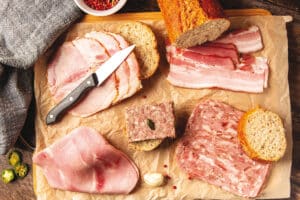
Salaisons de Bourbon is preparing to celebrate its fifty years of existence with a commercial event in August and September. In addition to its loyalty to the tradition of Creole charcuterie, it is also its ability to adapt to the market and anticipate the future which characterizes this emblematic company of the Reunion agri-food industry.. Originally specialized in smoking charcuterie, Salaisons de Bourbon has been able to respond to changing consumption patterns and attract a diversified clientele by expanding its offering to other products.. Currently, the company is fully committed to the objective of naturalness with the transition of its charcuterie products to the Clean label, that is to say without preservatives and without artificial colors. Launched in 2019 on the sausage range, this approach must be extended to other products. But the company sees further and intends not to miss the upcoming turning point in flexitarianism, dietary behavior that significantly reduces meat consumption without becoming vegetarian. Its new four-year industrial modernization program should enable it to prepare for this turning point. As soon as local demand arises, Salaisons de Bourbon will develop a vegetable pei range. The explanations of Olivier Masnin, Director of Salaisons de Bourbon.
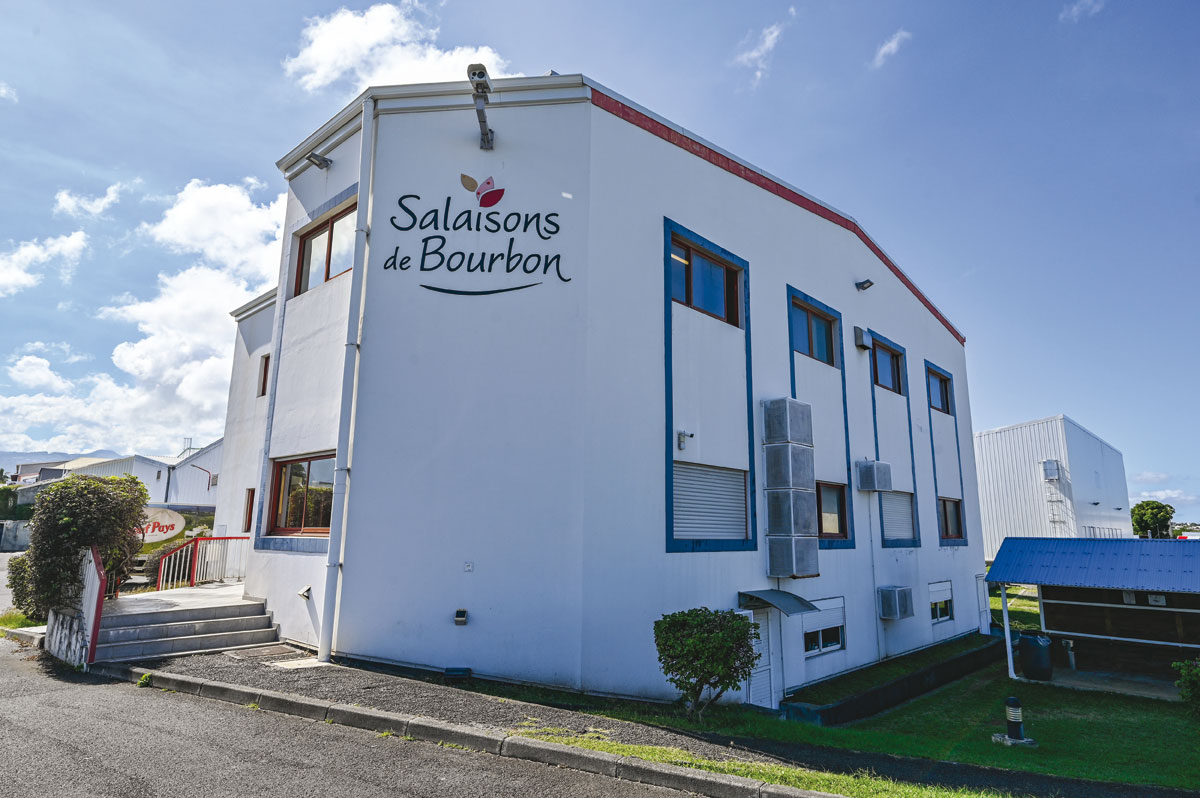
Meeting Leader : Creation and development of the company by Vadivel Savinien Germain Vayaboury from 1973. In 1998, Salaisons de Bourbon was bought by Vindémia before becoming the property of the Cooperative of Pork Producers of La Réunion in 2009. The CPPR allows Salaisons de Bourbon to develop, to innovate and modernize its industrial tools with, notably, the last large-scale investment of 2019 which sees the increase in the production site. You have been working in management since the last quarter of 2021. What new goals do you set for the company? ?
Oliver Masnin : Salaisons de Bourbon maintains the ambition to continue its development without losing any of its passion for everything that is good taste, Creole tradition and freshness. Continuing the history of the company, the goal we set for ourselves today, is to move towards more natural products, healthier, guaranteeing even more food safety for consumers while innovating to adapt to changing consumption patterns. Flexitarianism is growing : more and more people are giving vegetarian a place in their diet, without giving up meat. We also see the demand for packaged fresh products growing, individual shares. We must turn the corner on these developments. But in the shorter term, the issue, for us, it is to succeed in containing the current price increases maintained by continued inflation. It’s also about minimizing our environmental impact. The response to these issues primarily requires the use of local products., to favor the short circuit when the offer is available. We must also, as far as possible, adopt recyclable packaging. Discussion is underway on this subject and new packaging should soon arrive on the market. Finally, it’s about optimizing our energy resources. On this plane, we are carrying out a photovoltaic installation project to self-consume around 20% of our electricity needs. The implementation of this beautiful project is planned for 2023. Naturalness, adaptation to new consumer needs, fight against inflation, creation of new packaging, energy self-consumption… That’s a lot of topics. Hence the teamwork that we carry out, because it is all the know-how of Salaisons de Bourbon employees that will allow us to respond to these challenges.
Doesn’t an advantage of Bourbon Salads come from the fact that by introducing cured meats into large-scale distribution, M. Vayaboury did not really place himself in a logic of import-substitution, but continued a culinary tradition, source of possible diversification ?
I don't know if it was M's original idea.. Vayaboury. What I can say, is that our strength remains in offering products from the Reunion culinary tradition. We make preparation work easier for cooks, whether they are professionals or individuals. The company culture therefore has its roots in Reunionese tradition.. It evolved at the same time as the population evolved. Today’s Reunion Islanders consume a lot of Creole products, but they also consume other products. Also our job is to support them in a market that has become very competitive.. We face local competitors and many imported products.
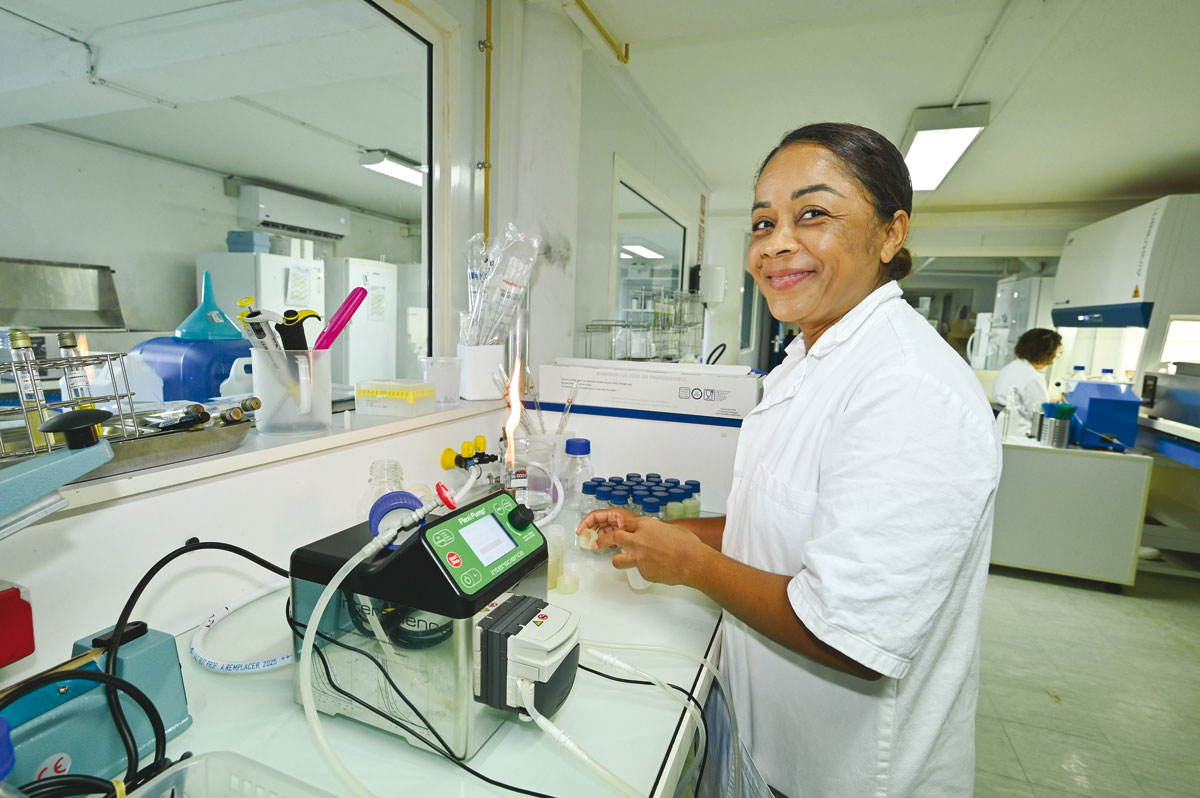
Salaisons de Bourbon therefore still asserts its roots in the culinary tradition of Reunion Island. ?
Absolutely. Our primary activity remains traditional Creole products.. We are Creole salt workers. This is our identity. But we also support the aspirations of our consumers by developing new ranges, like pizza, raw vegetables, smoked fish, etc. Fresh packaged, which is increasingly in demand, is another example. We develop according to market developments and new consumer expectations. There is demand for healthier products, consumption outside the home, le « snacking », the demand for quick and practical prepared meals for lunch. There is also flexitarianism which is starting to change food demand. We must not miss this turning point. We are a company selling charcuterie and traditional Reunion products., and we will remain so, because it is our DNA. But we must not forget that, in the years to come, a growing part of the population will want to eat something else. These are opportunities that we must seize.
In this turning point, you include the plant ?
Yes. Quite. We are considering a plant-based range in our approach to flexitarianism. Everything will depend on demand. If plants as a substitute for meat remain a niche today, it is clear that it is part of the future of food. Flexitarianism does not mean that people will not all become vegetarians, but they will vary their diet. We must be ready to meet this demand for food variety, to support this development. We will do it by moving at the same speed as the market. When we feel that the local market is ready, a plant-based range of Bourbon Salads will be able to complement our already very varied product offering.
Should we consider, in 2023, Salaisons de Bourbon as the industrial tool of the pork sector or as an independent company which sources its supplies from Reunion pork producers ?
Salaisons de Bourbon is a tool for transforming the Reunion pork industry, but cannot be supplied exclusively from Reunion producers. The pork sector aims to primarily serve fresh. This is its main market. More, oui, part of our raw materials come from local production.
What is the portrait of the company in 2023 in terms of workforce, of production, of turnover, of offers ?
We are 115 employees. In 2022, we sold 4,300 tonnes of products for a turnover of 31 million euros. We offer six product ranges between raw products, cooked, smoked, frozen, cooked meals, smoked fish. These products are marketed under four brands : Bourbon cured meats, Bourbon Caterer, Indian Ocean and Vermont smokes. We have a quality department of six people and we have our own analysis laboratory for our health monitoring.. This analytical capacity is fundamental for us, because it assures us that the raw materials that come in and the finished products that we put on the market are impeccable in terms of food safety.
And Ti Poultry ?
Ti Volaille differentiates the poultry range within the territory of the Salaisons de Bourbon brand which covers all charcuterie products. Each brand has its territory and its independence. Bourbon cured meats : charcuterie products, on the stand shelf with raw products such as boucané, and freshly packaged self-service. Vermont : our entry-level charcuterie products. Bourbon Caterer : salads, cooked meals, pizzas, and frozen corks. Indian Ocean Smoking : fish products. A total of 185 references — more than 200 including the different formats offered. We are present on all networks : GMS, restoration, communities.
The year 2019 saw the launch of a first Clean label offer without artificial colors and preservatives. There is no shortage of agri-food labels. Why did you choose this one? ?
We chose the Clean label, because it is the one that sets the standard in the field of charcuterie. It applies to ingredients used in the processing of products : everything we add, like spices and additives. The Clean label guarantees the use of natural ingredients, without artificial colors, without preservatives, in our meat products. It is not an obligation, but a desire on the part of the company to meet consumers' expectations for healthier products and to stand out from our competitors. This is one of the major consumer trends to which we must respond.
Can you explain how the Clean label works? ? Is it issued by an organization ?
Non, it is a voluntary approach by the company. We now work with approved distributors who provide us with Clean Label guaranteed ingredients.. Our finished products are controlled by an external laboratory based in mainland France, Eurofins, to make sure they are free from artificial additives and preservatives. There is no local laboratory capable of carrying out this type of analysis..
Does the Clean label apply to all your suppliers? ?
It applies to imported ingredients, but the idea would indeed be that our local suppliers join the process. We want to help them. Regarding our cooked dishes, For example, we are studying with our partners the possibility of extending this requirement. We are in discussion with them.

Where are you with the deployment of the Clean label on your products? ?
Our entire range of pork-based sausages, poultry, as well as sheep, est Clean label. The next step will see the reduction of the nitrite content of our cooked shoulders. Nitrite is used as a preservative food additive in cold meats. This content will be reduced by 25% from July. Our ambition is to be able to apply the Clean label to all our products. These are long projects to implement, because they require our upstream suppliers to adapt their own products to this requirement.
Does the generalization of the Clean label lead you to review your recipes and your production processes? ?
Yes, we review recipes to obtain more natural and healthier products. To do this, we must improve manufacturing processes and flow management to avoid contamination. The Clean label approach is binding, but we assume the implications. It allows us to offer consumers more quality traditional products..
Fewer preservatives means reduced shelf lives ?
DLCs are halved. As for the absence of artificial coloring, it changes the color of our products. Artificial ingredients helped maintain certain colors. Products becoming more sensitive to oxidation, their colors evolve.
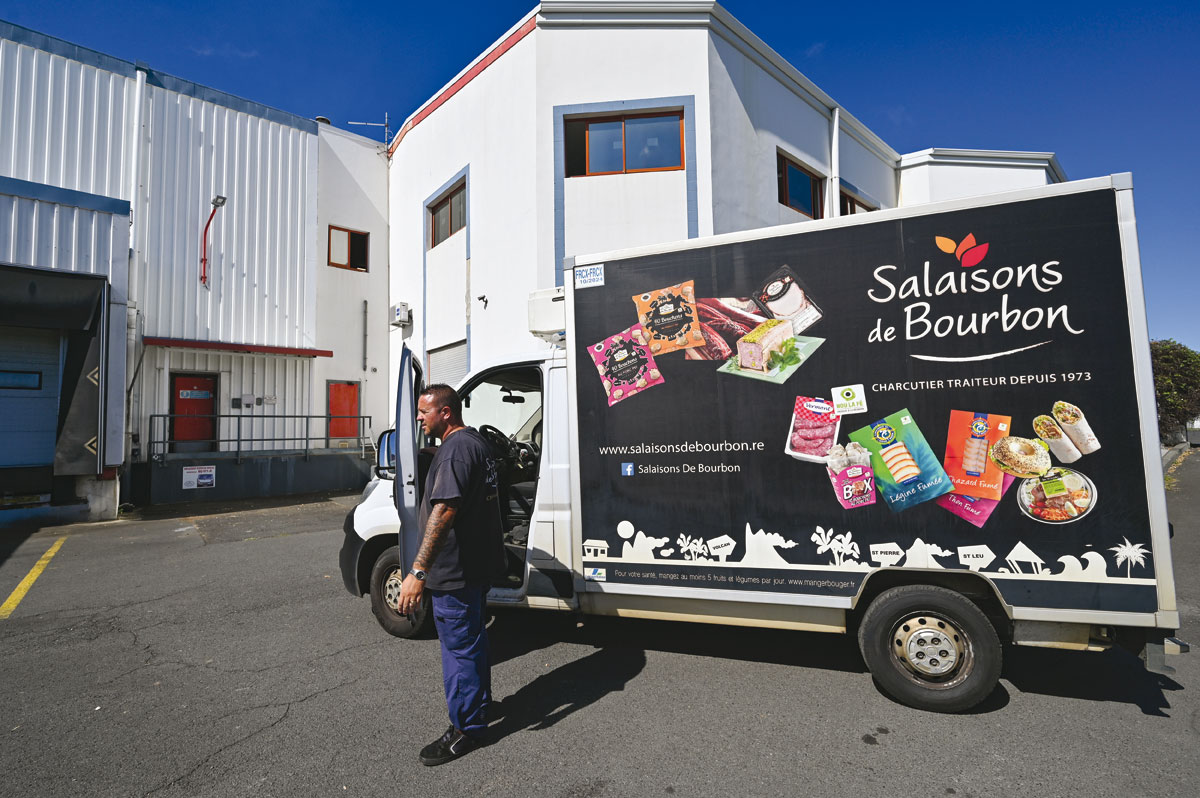
What is the consumer reaction? ?
Consumers are perfectly informed of the Clean label approach. Membership is very good. Since the implementation of the Clean label, we are recording an increase in sales on our sausage ranges.
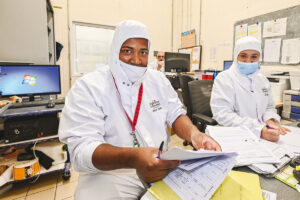
Salaisons de Bourbon implements a major investment program. Is this program linked to this approach? ?
The investment plan which will be deployed over the next four years will modernize and make the infrastructure and production tools more reliable in order to satisfy, Effectively, the goals I mentioned. Continue to innovate to meet new consumer needs. Improving the quality of our products by integrating the Clean label. Always guaranteeing greater food safety. Reduce our impact on the environment. We will improve quality while better controlling our costs. We will be more competitive in this period of rising prices which must be contained. These investments will also improve the working conditions and safety of our employees..
You renew the industrial tool or you complete it ?
Both. The plan includes both the renewal of certain machines and the introduction of new machines which will increase our production capacities and allow us to carry out new projects.
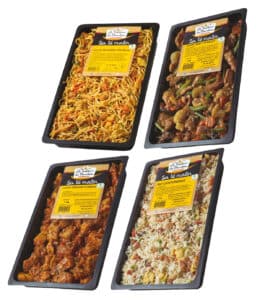
Yes, we will be able to relaunch innovation thanks to this program. We have a lot of ideas that still need to be brought to fruition. Flexitarianism, new consumption patterns will necessarily lead us to work on new things. The playing field is quite wide.
The craze for pizza continues unabated in Reunion Island : do you have any plans in this market ?
We are already present in this market with a fairly wide range of fresh pizzas, that is to say made in Reunion. Freshness is our great asset on imports. Our goal is to continue on this path. New recipes will give consumers even more choice.
What is your ambition in frozen foods? : develop exports in mainland France, develop a collective catering offer ?
Our industrial know-how in frozen foods focuses mainly on the cap. Our desire is to continue to develop this range of corks with the Traiteur de Bourbon brand.. On export, we remain on standby. We already have a partner in mainland France to whom we send several containers per year of frozen products : caps, but also smoked, smoked sausages, etc. The modernization of our industrial tool, by improving our productivity, should allow us to free up capacity to open up more to exports. But it will depend on demand.
And the community market ? With the Egalim law, the context is favorable for local businesses…
We are present in this market, but for the moment in a minimal way. Collective catering is a market that needs specific formats. I would clearly tell you that one of the goals of our current investments is to be able to meet these needs for particular formats.
Will the range of seafood products expand? ?
Sliced fish smoking range includes marlin, thazard, swordfish, thon, salmon and toothfish. So it’s already a nice range, well supplied. We exploit our smoking know-how, our core business, with fish. This range demonstrates our ability to respond to a wide variety of customer requests..
Can we deduce from your experience in mainland France with major canned food manufacturers that a “Salaisons de Bourbon” canned project would be possible in the future? ?
What is sure, it's that, in the plan that we have built, there is no canned rougail sausage or other planned ! Non, it's not in our boxes. Not in the next four years anyway…
Have you planned a special operation for the company’s fifty years of existence? ?
Different things are indeed planned. In the months of August and September, events will be organized in stores in conjunction with a competition offering prizes to be won by consumers. It will be an online game relayed to large retailers, but also in the wholesale network for our professional customers. This commercial promotion operation will be the most important deployed so far by Salaisons de Bourbon. We will also have an internal event for our employees and their spouses, our distributor customers, our partners, which will also be held in September.
What message does Salaisons de Bourbon wish to send to consumers on the occasion of these fifty years of existence? ?
Fifty years, it's something ! Our message to consumers is the one that I have just developed in front of you. The company intends to capitalize on its fifty years of know-how, and on this new asset that represents naturalness associated with good taste, to practicality, to innovation. All this with low prices. This is how we hope to continue to delight the taste buds of Reunion Islanders for the next fifty years ! And thus contribute to celebrating 100 years of Salaisons de Bourbon !
 Landmarks
Landmarks
1973 : Start of the pork charcuterie activity.
1984 : Launch of the fresh catering activity : cooked meals (rougail sausages, popped mines, etc.)
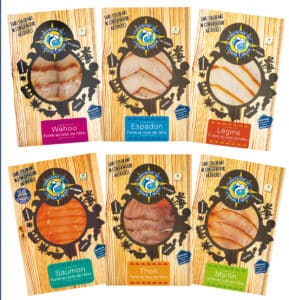
2003 : Launch of the first fresh pizzas.
2006 : Launch of the poultry charcuterie range.
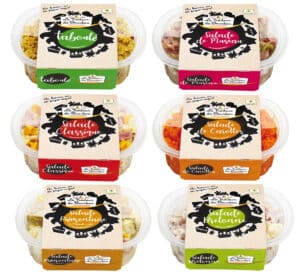
2009 : Acquisition of Bourbon cured meats by the Reunion Island Pig Producers Cooperative (CPPR), which brings together the main livestock farms on the island.
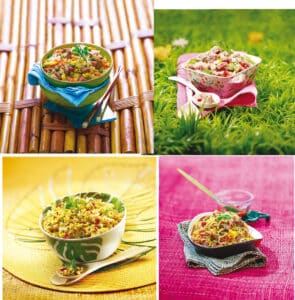
2019 : Launch of the Clean label range, new offer of pork and poultry sausages without artificial colorings and preservatives.
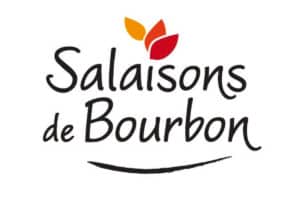
OLIVIER MORE, A RICH EXPERIENCE IN THE AGRI-FOOD INDUSTRY

He is an engineer with more than twenty years of experience in factory management who reports, since his arrival in Reunion, the current industrial and commercial challenge of Salaisons de Bourbon. Graduate of the School of Advanced Engineering Studies (HERE) from Lille, Olivier Masnin already has a successful industrial career within the three heavyweights of the French cannery.. At Bonduelle, First of all, where he directed, from 2001 to 2014, three factories, first in Picardy, then to Germany (production of bagged salads), and finally in the southwest of France for nine years (canned vegetables). He then took charge of a canned ready-made meal factory at William Saurin for two years.. Oliver Masnin moved to d’aucy in 2016, of which he managed one of the production sites for five years near Agen. He took over the management of Salaisons de Bourbon in October 2021.


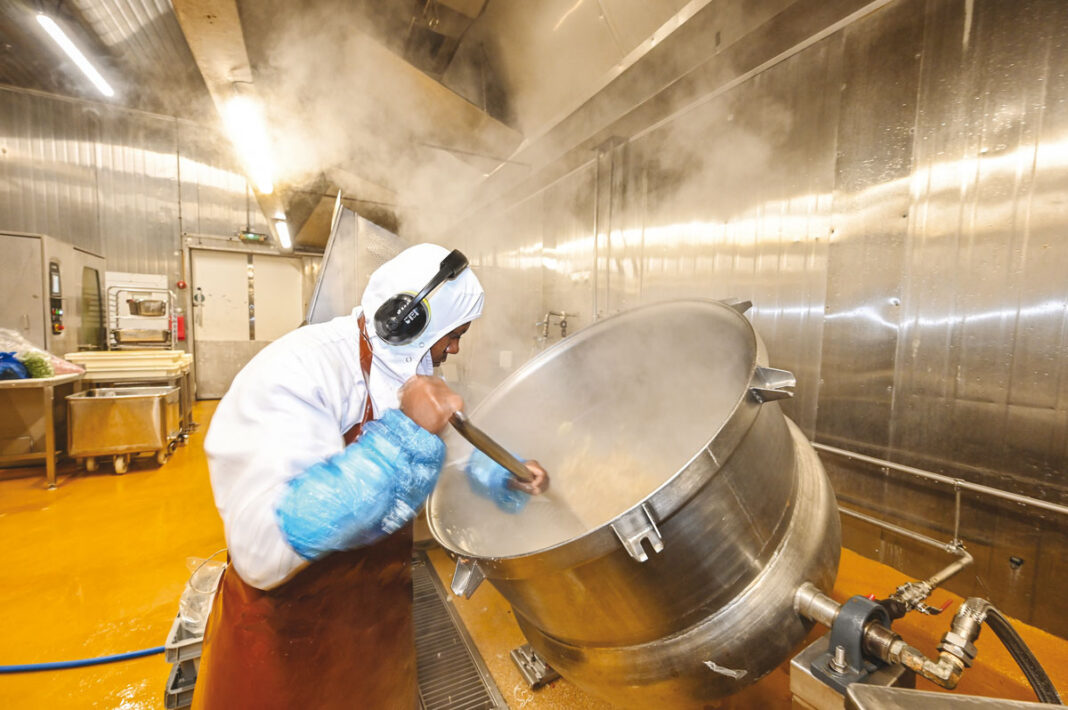

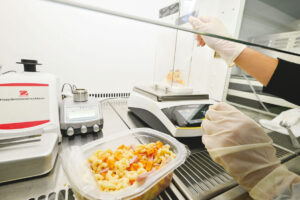
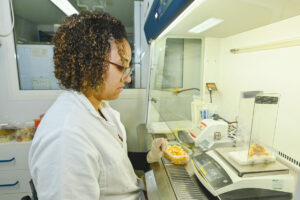
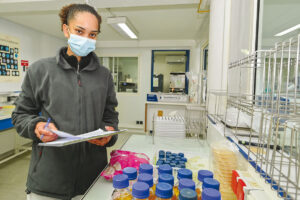
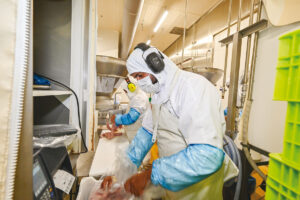
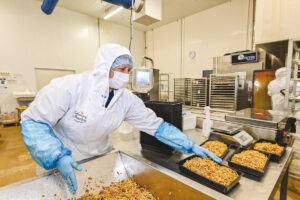
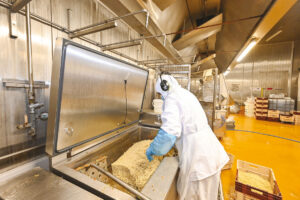
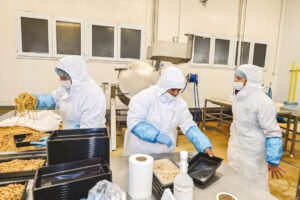
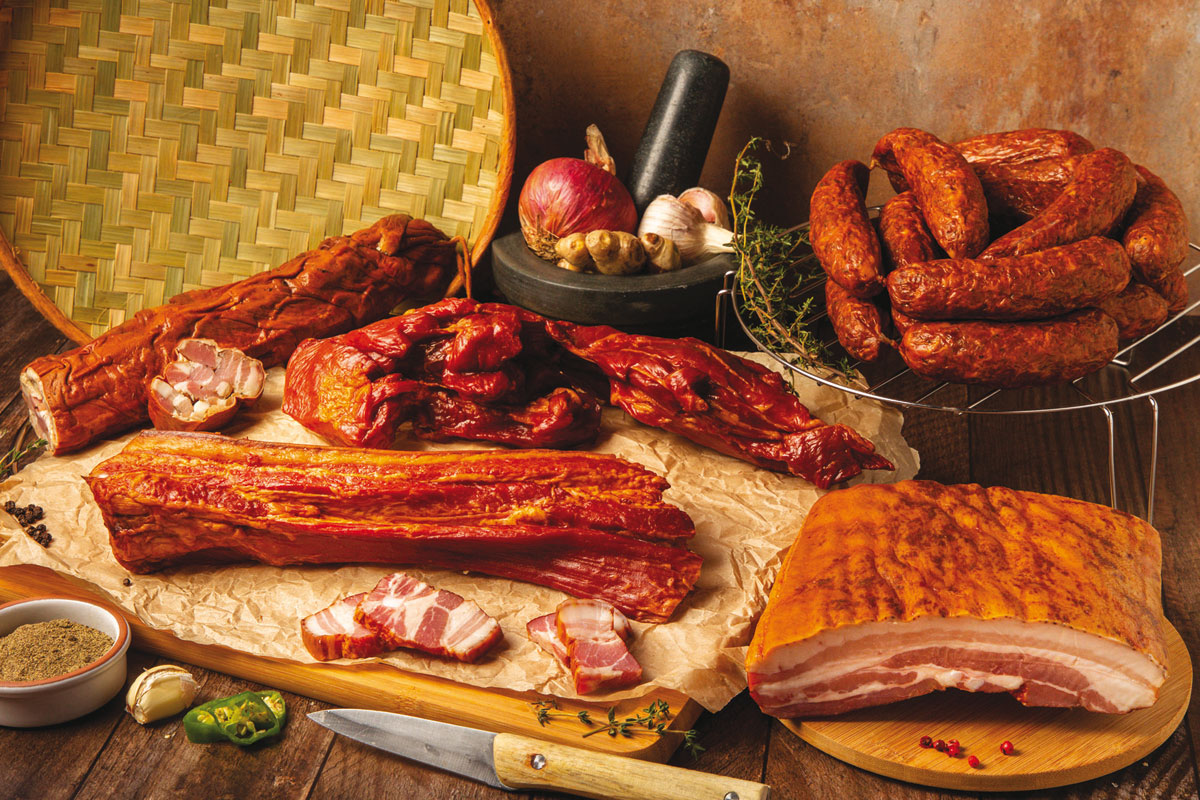
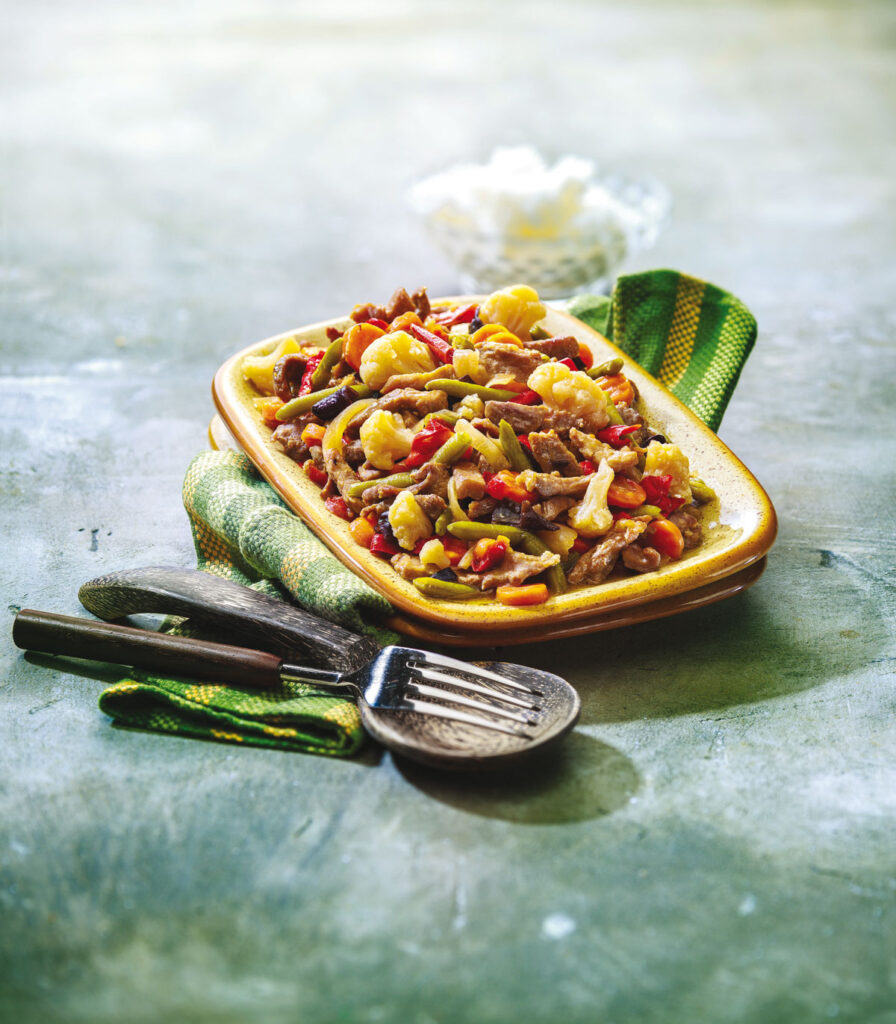
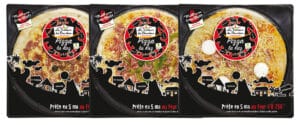
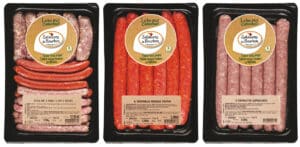
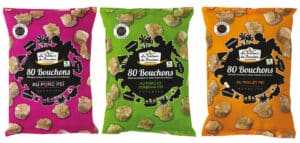
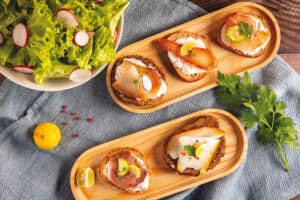 Landmarks
Landmarks